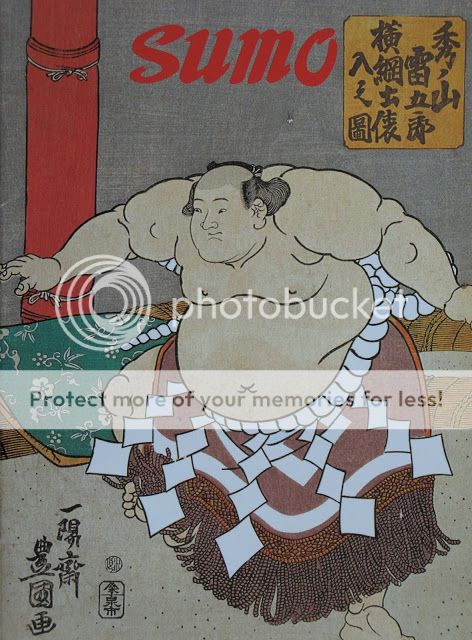- Joined
- Nov 7, 2005
- Messages
- 19,876
- Reaction score
- 1,831
Hey guys. I found this new documentary from Al Jazeera on Mongolian wrestling and sumo. Enjoy.
sheeeyit, not available in the US apparently. looks interesting though, thanks!
Hey guys. I found this new documentary from Al Jazeera on Mongolian wrestling and sumo. Enjoy.

I wrote a four part introduction to Sumo on my blog. I put a lot of pictures from the festival I went to a couple of years ago.
The info. comes from a Sumo handbook I got when I was there. I also want to thank GoForkYourself for letting me use some of the information he compiled in this thread.
I'm still a Sumo newbie (I'm nowhere as knowledgeable as he is), and he's the dude that got me into it.
Part I: http://iloveleglocks.blogspot.kr/2013/08/introduction-to-sumo-part-i-history-and.html
Part II: http://iloveleglocks.blogspot.kr/2013/08/introduction-to-sumo-part-ii-banzuke.html
Part III: http://iloveleglocks.blogspot.kr/2013/08/introduction-to-sumo-part-iii-sumo.html
Part IV: http://iloveleglocks.blogspot.kr/2013/08/introduction-to-sumo-part-iv-gyoji.html
It's just a small handbook, maybe about 10 or 12 pages. It very informative though.so, so awesome.
and how is the sumo book? i've often wanted to buy a book on sumo, but there doesn't seem to be much of a selection on amazon, and i always felt unsure about how good the books on there would be.
i'd love a great, exhaustive book on sumo history.
It's just a small handbook, maybe about 10 or 12 pages. It very informative though.
I'll be in Japan again during the next festival in September, but unfortunately I will be in Fukuoka (Kyushu):icon_cry2i see, that's great.
I'll be in Japan again during the next festival in September, but unfortunately I will be in Fukuoka (Kyushu):icon_cry2
dont they drink beer all day too?
Never say never my friend:yeah,and japanese are taking over NBA

Great work Ts thanks. I saw a documentary on sumo and how bigger Americans were slowly taking over the sport. Is this true, and if so what are your thoughts on this?
bigger americans were doing well back in the 90's and early 2000's. that was when hawaiians Akebono and Musashimaru were Yokozuna and some of the guys at the top of the sport. earlier in the 70's there was Takamiyama, also from hawaii, who was actually Akebono's coach.
since the early 2000's though, americans haven't really played a big role at all in sumo, and there aren't any in the top divisions. there's only one american in sumo right now, Musashikuni (who is actually Musashimaru's nephew i think) and he just joined the sport recently and is ranked quite low.
the ones really taking over the sport right now are the mongolians.
Thank you once again. I have alot respect and reverence towards sumo. You have helped me understand more about it. I know Mongolia has its own style of wrestling, does this contribute to their success? For example Thai's fighting in kickboxing, or American wrestlers in MMA. Thanks regardless
thanks man, it's my pleasure.
and i think you're absolutely right that mongolian wrestling is a monumentally important factor in mongolia's success in sumo. as a sport it is quite different from sumo, but a lot of the tripping and throwing attacks are similar, and the novelty of the mongolian attacks can make them more effective in sumo.
we don't see that many koreans in sumo, although their are a few, but korea has a similar wrestling style called ssireum:
and a lot of the european sumo wrestlers have amateur wrestling backgrounds which definitely contribute to their success as well.
so yeah, all of these grappling styles have their uses in sumo (judo of course is a common background for sumo wrestlers), but from the success of the mongolians it certainly seems that mongolian wrestling is very helpful.
we don't see that many koreans in sumo, although their are a few, but korea has a similar wrestling style called ssireum:
There's a guy or two at my club that are ssireum wrestlers. They are strong as hell and have an amazing base. I've always wanted to try it out. I'll watch it whenever it comes on t.v. over here.
